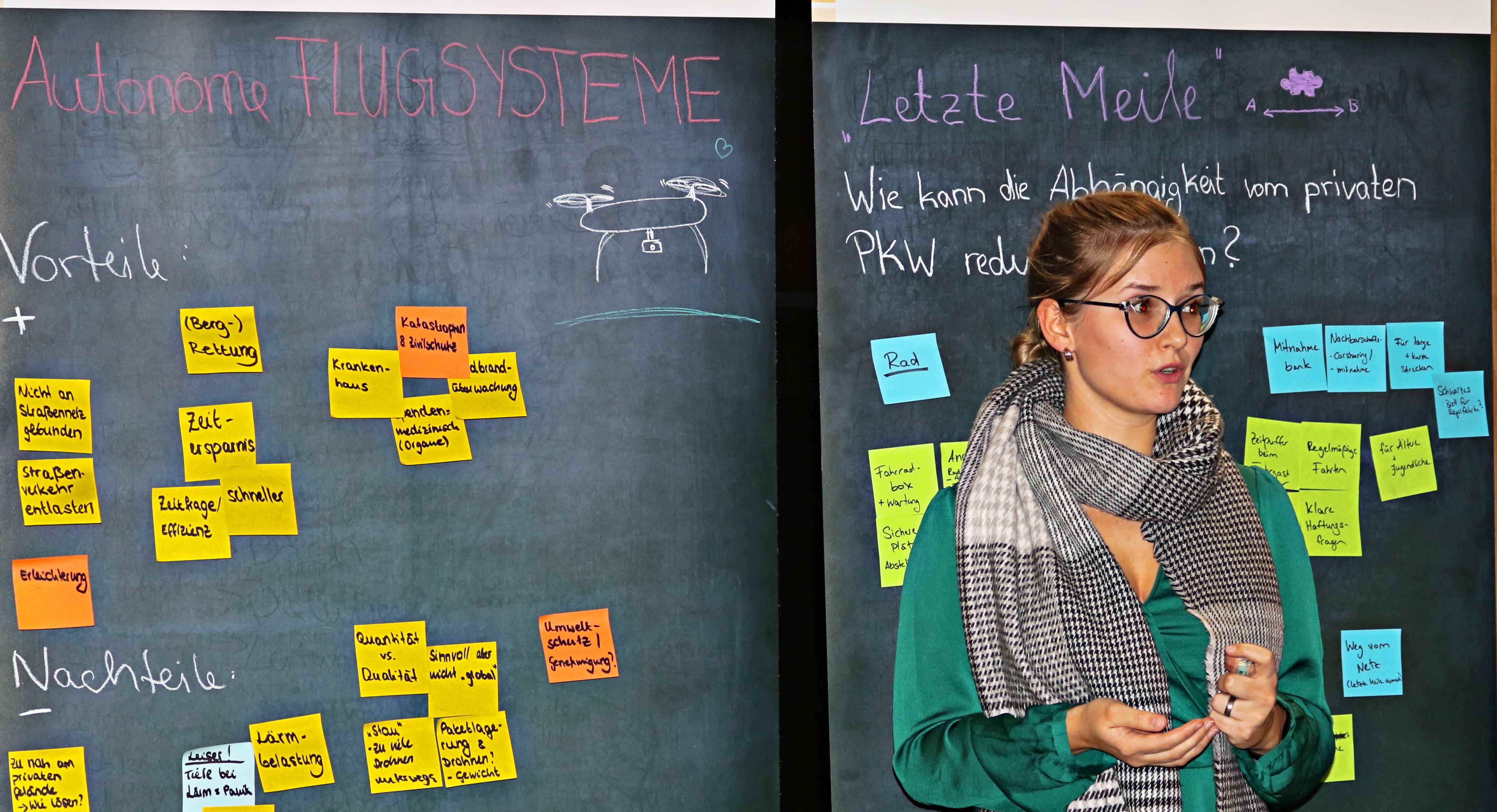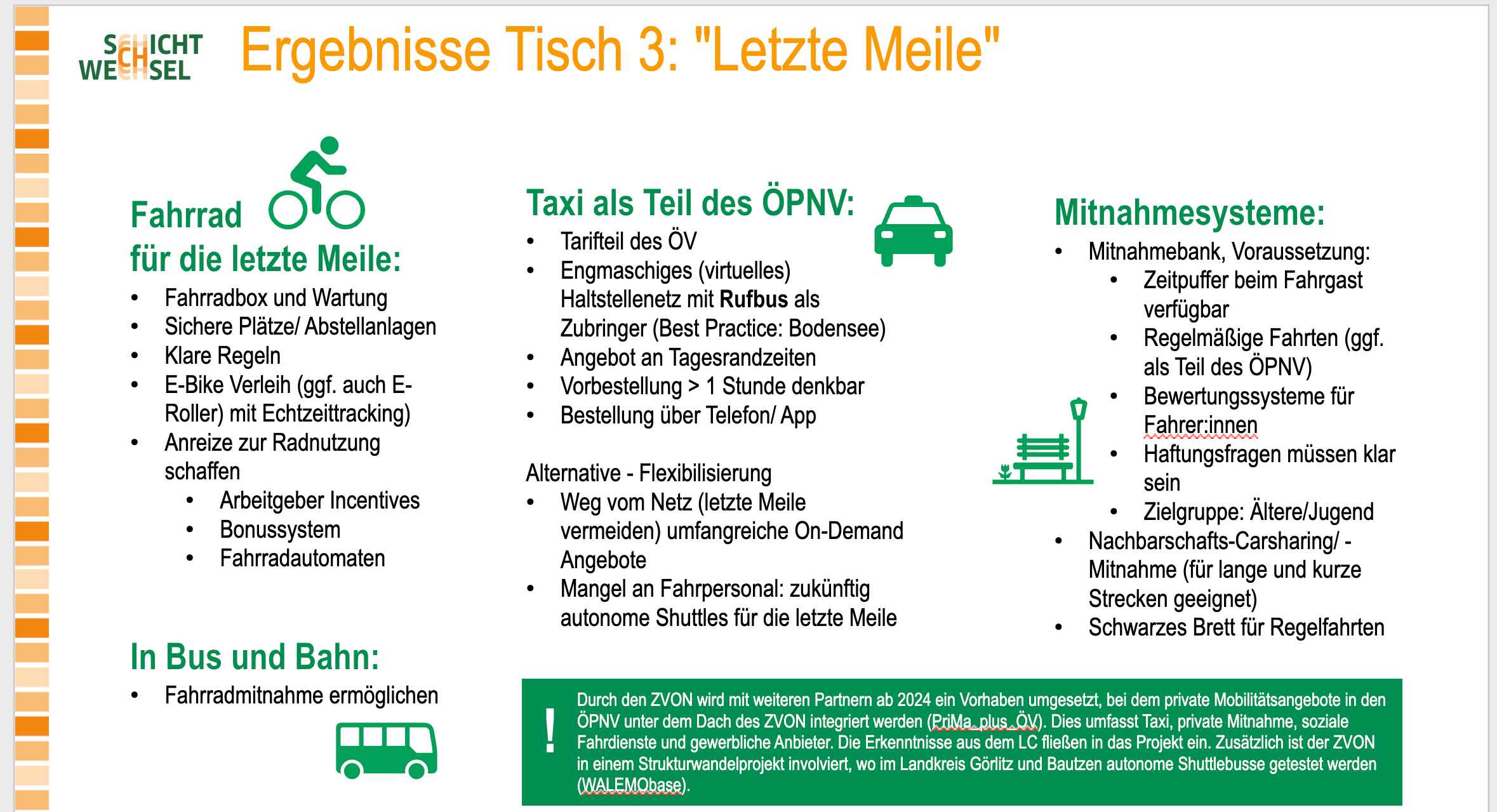structural development
Lausitz Café for mobility MOVES
- structural development
- Hits: 1007

Hello!
Today we report on the 5th Lausitz Café, where the topic of "Mobility - monkey tooth or snail's pace" was discussed passionately and constructively.
This is how citizen participation works - and this is how institutions can come into direct, honest contact with those who manage or govern them.
After a short keynote speech, Oliver Clemenz from the road traffic department took part Office for Infrastructure and Mobility The more than 20 committed guests answered questions and questions. For example, the topic of school buses and the new timetables, which had been hotly debated in the past, was addressed. Mr. Clemenz explained many small measures to adjust the timetable, but above all that connection security in school transport together with the stabilization of the network should be seen as focal points. Together with the guests, he agreed that communication with schools, municipalities and parents was important and had to be maintained on a permanent basis. If you have any questions or ideas on the topic, please feel free to contact us at
Then we started the first table discussions - according to the principle of the World Café , which offers the opportunity to let many different perspectives have their say.
Ilka Hunger, offer planner from ZVON , led the discussions at table 1 on the question of which channels ZVON travelers would use to find out about the timetable .
This resulted in direct feedback and suggestions for the ZVON's information channels , which will use the findings from the Lausitz Café to evaluate its offers (information channels) and make appropriate adjustments. The guests suggested a ZVON app, they learned that real-time information was already being planned and that, despite all the love for digital, printed timetable information would still be desired. Not only because the network coverage in the district and in public transport is still expandable and is not always the case - many people simply like to have a timetable at home and in their pocket. The guests also suggested that ZVON should be more represented on social media and that newsletters would be read if they were expanded a little.
At table 2, ENO-TaFo project manager and managing director of the Rothenburg airfield Uwe Garack and project manager Emilia Grass (photo above - her Lausitz café premiere!) discussed the exciting future topic of autonomous flight systems The many advantages that small delivery drones offer in everyday life, be it for shopping or sending urgent medical samples or medication, were compared with the disadvantages. For example, when using autonomous flight systems, there would have to be secure monitoring - so that they do not fly over private property. The issue of noise pollution and environmental protection aspects were also mentioned.
In the future, a project for autonomous flying is planned in the Görlitz district. (Unfortunately, no more can be revealed yet). The findings from the Lausitz Café will now be used primarily for communication with citizens. It is clear that citizens must be informed and their concerns must be alleviated through education. And it is clear that rural areas in particular can benefit from currently available technical options (e.g. when transporting sensitive products, blood samples and also within the forest guard program).
Heike Schleussner was welcomed at table 3 on the topic of the “last mile” - how do you get to your actual destination from public transport - and how can dependency on the car be reduced? We think the results in the us picture are impressive - we would be happy to pass them on to ZVON!

Lots of experiences, lots of opinions - and lots of great ideas. Exactly our idea of citizen participation: everyone has different experiences - if these are discussed and explored together, public transport will hopefully soon run even more smoothly. Here is the presentation of the results from Table 3.
At the 4th table, our innovation and project manager Saskia Brosius welcomed the visitors to the Lausitz Café. The topic of “shaping mobility” inspires. It was about how surveys could be used to specifically reach public transport users, but also all other road users. The surveys should take place online, in personal interviews, at stops and at ticket machines and be evaluated quickly. This was important to everyone: if criticism occurs, feedback is expected quickly. These surveys should be carried out during waiting or travel times, where users are met: at stops, on buses and trains, and at parents' evenings to discuss student transport. ask explicit interest groups and their representatives, such as the district senior council And get drivers involved: you can reach drivers and highlight the advantages of public transport through the radio, through cards under the windshield wipers that should be distributed in traffic jams. “Create incentives – compensate for deficits” is the motto. The ideas mentioned here were to create (more) space for bicycles in public transport and to adapt the offering to events. This is how things can happen - with the transport transition, sustainability and good, fast public transport, even in rural areas.
Best regards!
Your Jasna
Thank you for rating this post.

